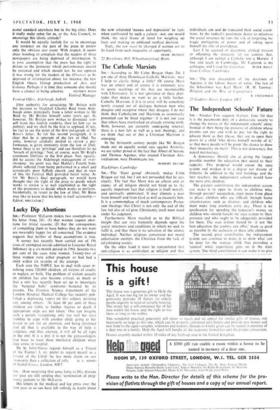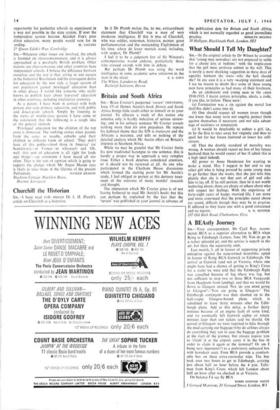The Independent Schools' Future SIR,—Alasdair Fox suggests Letters. June 24)
that it is the paramount duty of a democratic society to change the nature of the independent schools' entry. Instead of their being the preserve of children whose parents can pay and wish to pay for the right to educate them as they please. they are to open their doors to a child 'who shows himself worthy of it,' so that more people will be given 'the chance to show their inequality on merit.' This is not democracy, but naked meritocracy.
A democracy should aim at giving the largest possible number the education best suited to their capacity. This proposal would cream the state system and weaken it to a degree not dreamt of hitherto. In addition to the best buildings and the best teachers, the independent schools would have the most able children.
The greatest contribution the independent system can make is to open its doors to children who, through parents' occupation, must move from place to place; children who are difficult through home circumstances such as divorce: and children who must make long journeys every day. There is no justification for spending the taxpayer's money on children who should benefit i he state system by their presence and who ought to be adequately provided for there. The state system should be—if not 'the best education the country can offer,' made as good as possible by the-inclusion of these able children.
The second great contribution the independent system can continue to make is to show what can be done for the average child, thus providing a 'control' while experiment goes on in the state system. The third contribution it can make is to give
opportunity for particular schools tq experiment in -a way not possible in the state system, If ever the independent system became Alasdair Fox's pure elitist education, many people would vote for its































 Previous page
Previous page